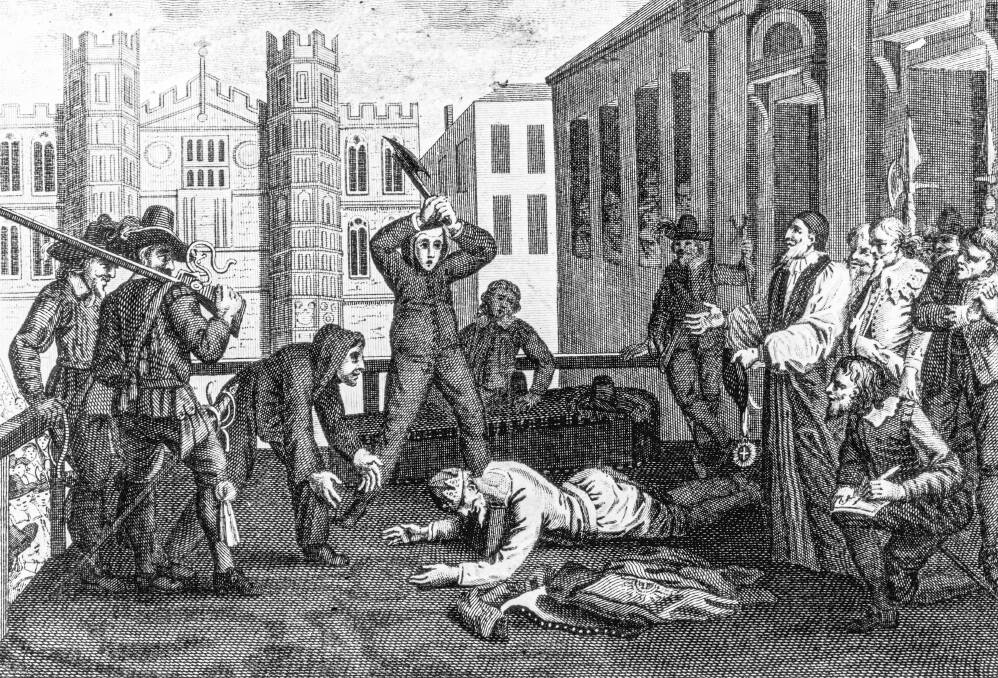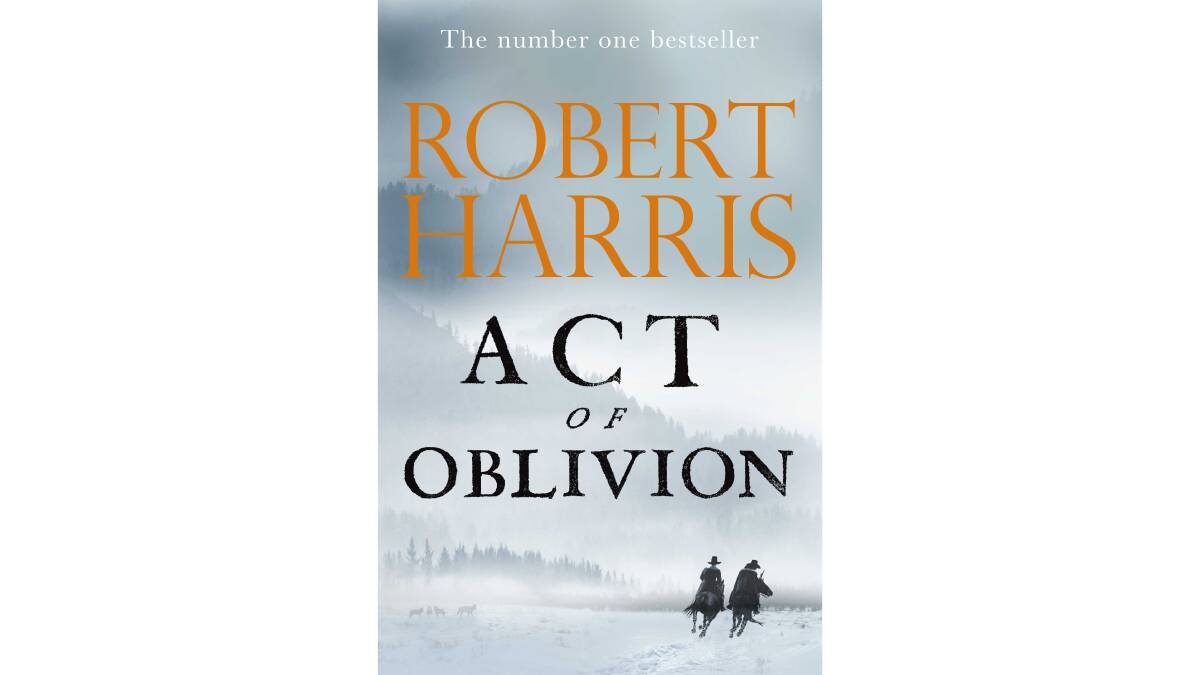
Robert Harris' bestselling novels have notably been inspired and informed by historical events, most recently Munich (2017) and V2 (2020).
Subscribe now for unlimited access.
$0/
(min cost $0)
or signup to continue reading
In Act of Oblivion, Harris turns his attention to the English Civil War and its aftermath. He describes the execution of Charles 1 on Tuesday January 30th 1649 as "one of the most dramatic revolutionary acts of European history" and that England was, as a result, a republic for 11 years as "sensational".
Harris cannot understand, given the contemporary fascination with the Tudors and with historical dramas, why more hasn't been written about the Civil War.
Harris believes one of the reasons is that it's complicated, explaining, "it wasn't just Parliament versus the King. It's the King versus Parliament versus Cromwell's army which turns on Parliament in the end. It's about religious fundamentalism. They were a sort of Protestant Taliban in many ways".

When the monarchy is eventually restored in 1660, an Act of Indemnity and Oblivion gave a free pardon to everyone who had fought against the King, except for 104 named individuals who had been directly involved in the trial and execution of Charles 1 - the Regicides.
Twenty-four had already died, nineteen were imprisoned for life, many died a traitor's death. Samuel Pepys recorded in his diary on Monday 15th October 1660, "this morning Mr Carew [the regicide] was hanged and quartered at Charing Cross; but his quarters by a great favour are not to be hanged up". Five days later he wrote "I saw the limbs of some of our new traitors set upon Aldersgate, which was a sad sight to see; and a bloody week this and the last have been, there being ten hanged, drawn and quartered".
The remainder fled, many to Europe but three sought refuge in the American colonies.
In Act of Oblivion, Harris tells the story of two who were never brought to justice, Colonel Edward Whalley, Cromwell's cousin and confidant and his son in law Colonel William Goffe. In reality, they were both Major Generals in Cromwell's army. Whalley commanded the cavalry and Goffe the foot regiment. They were both radical puritans, to the point of zealotry.
Harris' novel is based on the true story of their desperate attempts to evade all attempts to discover and capture them. All the characters with one notable exception are real historical figures. In his author's note Harris introduces his one fictional character, Richard Naylor, the man tasked by Chancellor Hyde with hunting down Whalley and Goffe, explaining "you cannot sustain a man hunt without a man hunter -but whoever he was, his identity is lost to history."
Harris describes him as "one of those who moves, anonymous, along the private passages and through the council chambers of every nation and every age", and creates a tragic back story to explain his obsession with the two men.
Harris imagines Naylor witnessing Charles 1's execution and, as a result, keeping a piece of linen stained with the King's blood on his person at all times. He is also the obvious man to have supervised the exhumation of three of the dead regicides, Cromwell, Ireton and Bradshaw, whose bodes were symbolically hung and then beheaded.
Whalley and Goffe arrive in Massachusetts on 27th July 1660 with " ragged-bearded heads . . . long matted hair' in "buff leather overcoast, caked in salt".The American colonies were an ideal place for them to hide, as they were populated by Puritans, who had fled religious persecution under Charles 1. There was little loyalty to the crown.
They initially stay in Cambridge with Daniel Gookin and his family, Gookin tells his wife Mary when she asks why they have arrived at their farm and not stayed in Boston "because Boston is full of rogues and royalists, whereas here they will be among the godly". Gookin explains to Mary, "They are good men . . They're in need to sanctuary until things quieten down. There's nothing to fear. No one knows they're here, save you, me and the governor".
But there is much to fear. There are royal warrants for their arrest and a price on their heads. However, they are initially safe in Cambridge. Even the Governor delays the King's men, when they arrive, to allow Whalley and Goffe to flee further into the more isolated communities, moving from one safe house to the next.
They spend one summer in a cave in Connecticut, living a primitive existence, almost naked and covered in lice. Whalley thinks, "we are Christian gentlemen no longer. We have turned into savages, save we lack their bodily grace and competence".
Act of Oblivion brings to life a chaotic time in English history. It is an extraordinary story of stoicism and persistent self-belief, full of moral nuances, told by a master storyteller.

